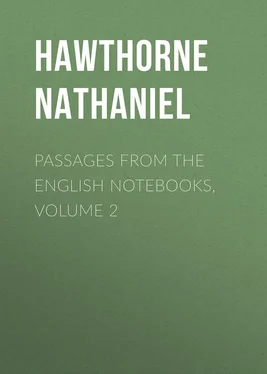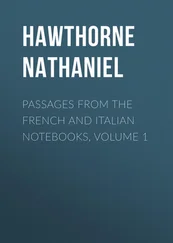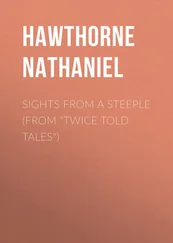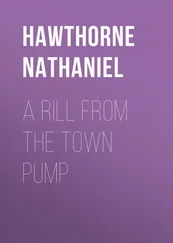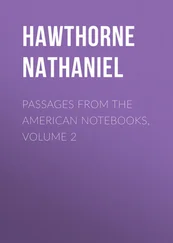Nathaniel Hawthorne - Passages from the English Notebooks, Volume 2
Здесь есть возможность читать онлайн «Nathaniel Hawthorne - Passages from the English Notebooks, Volume 2» — ознакомительный отрывок электронной книги совершенно бесплатно, а после прочтения отрывка купить полную версию. В некоторых случаях можно слушать аудио, скачать через торрент в формате fb2 и присутствует краткое содержание. Жанр: literature_19, foreign_antique, foreign_prose, на английском языке. Описание произведения, (предисловие) а так же отзывы посетителей доступны на портале библиотеки ЛибКат.
- Название:Passages from the English Notebooks, Volume 2
- Автор:
- Жанр:
- Год:неизвестен
- ISBN:нет данных
- Рейтинг книги:5 / 5. Голосов: 1
-
Избранное:Добавить в избранное
- Отзывы:
-
Ваша оценка:
- 100
- 1
- 2
- 3
- 4
- 5
Passages from the English Notebooks, Volume 2: краткое содержание, описание и аннотация
Предлагаем к чтению аннотацию, описание, краткое содержание или предисловие (зависит от того, что написал сам автор книги «Passages from the English Notebooks, Volume 2»). Если вы не нашли необходимую информацию о книге — напишите в комментариях, мы постараемся отыскать её.
Passages from the English Notebooks, Volume 2 — читать онлайн ознакомительный отрывок
Ниже представлен текст книги, разбитый по страницам. Система сохранения места последней прочитанной страницы, позволяет с удобством читать онлайн бесплатно книгу «Passages from the English Notebooks, Volume 2», без необходимости каждый раз заново искать на чём Вы остановились. Поставьте закладку, и сможете в любой момент перейти на страницу, на которой закончили чтение.
Интервал:
Закладка:
Leaving these good people, who were very hospitable, giving tea and offering wine, we reached Salisbury in time to take the train for Southampton.
June 18th. – Yesterday we left the Castle Hotel, after paying a bill of twenty pounds for a little more than a week's board. In America we could not very well have lived so simply, but we might have lived luxuriously for half the money. This Castle Hotel was once an old Roman castle, the landlord says, and the circular sweep of the tower is still seen towards the street, although, being painted white, and built up with modern additions, it would not be taken for an ancient structure. There is a dungeon beneath it, in which the landlord keeps his wine.
J – and I, quitting the hotel, walked towards Shinley along the water-side, leaving the rest of the family to follow in a fly. There are many traces, along the shore, of the fortifications by which Southampton was formerly defended towards the water, and very probably their foundations may be as ancient as Roman times. Our hotel was no doubt connected with this chain of defences, which seems to have consisted of a succession of round towers, with a wall extending from one to another. We saw two or three of these towers still standing, and likely to stand, though ivy-grown and ruinous at the summit, and intermixed and even amalgamated with pot-houses and mean dwellings; and often, through an antique arch, there was a narrow doorway, giving access to the house of some sailor or laborer or artisan, and his wife gossiping at it with her neighbor, or his children playing about it.
After getting beyond the precincts of Southampton our walk was not very interesting, except to J – , who kept running down to the verge of the water, looking for shells and sea-insects.
June 29th. – Yesterday, 28th, I left Liverpool from the Lime Street station; an exceedingly hot day for England, insomuch that the rail carriages were really uncomfortable. I have now passed over the London and Northwestern Railway so often that the northern part of it is very wearisome, especially as it has few features of interest even to a new observer. At Stafford – no, at Wolverhampton – we diverged to a track which I have passed over only once before. We stopped an hour and a quarter at Wolverhampton, and I walked up into the town, which is large and old, – old, at least, in its plan, or lack of plan, – the streets being irregular, and straggling over an uneven surface. Like many of the English towns, it reminds me of Boston, though dingier. The sun was so hot that I actually sought the shady sides of the streets; and this, of itself, is one long step towards establishing a resemblance between an English town and an American one.
English railway carriages seem to me more tiresome than any other; and I suppose it is owing to the greater motion, arising from their more elastic springs. A slow train, too, like that which I was now in, is more tiresome than a quick one, at least to the spirits, whatever it may be to the body. We loitered along through afternoon and evening, stopping at every little station, and nowhere getting to the top of our speed, till at last, in the late dusk, we reached
GLOUCESTER,
and I put up at the Wellington Hotel, which is but a little way from the station. I took tea and a slice or two of ham in the coffee-room, and had a little talk with two people there; one of whom, on learning that I was an American, said, "But I suppose you have now been in England some time?" He meant, finding me not absolutely a savage, that I must have been caught a good while ago..
The next morning I went into the city, the hotel being on its outskirts, and rambled along in search of the cathedral. Some church-bells were chiming and clashing for a wedding or other festal occasion, and I followed the sound, supposing that it might proceed from the cathedral, but this was not the case. It was not till I had got to a bridge over the Severn, quite out of the town, that I saw again its tower, and knew how to shape my course towards it.
I did not see much that was strange or interesting in Gloucester. It is old, with a good many of those antique Elizabethan houses with two or three peaked gables on a line together; several old churches, which always cluster about a cathedral, like chickens round a hen; a hospital for decayed tradesmen; another for bluecoat boys; a great many butcher's shops, scattered in all parts of the town, open in front, with a counter or dresser on which to display the meat, just in the old fashion of Shakespeare's house. It is a large town, and has a good deal of liveliness and bustle, in a provincial way. In short, judging by the sheep, cattle, and horses, and the people of agricultural aspect that I saw about the streets, I should think it must have been market-day. I looked here and there for the old Bell Inn, because, unless I misremember, Fielding brings Tom Jones to this inn, while he and Partridge were travelling together. It is still extant; for, on my arrival the night before, a runner from it had asked me to go thither; but I forgot its celebrity at the moment. I saw nothing of it in my rambles about Gloucester, but at last I found
THE CATHEDRAL,
though I found no point from which a good view of the exterior can be seen.
It has a very beautiful and rich outside, however, and a lofty tower, very large and ponderous, but so finished off, and adorned with pinnacles, and all manner of architectural devices, – wherewith these old builders knew how to alleviate their massive structures, – that it seems to sit lightly in the air. The porch was open, and some workmen were trundling barrows into the nave; so I followed, and found two young women sitting just within the porch, one of whom offered to show me round the cathedral. There was a great dust in the nave, arising from the operations of the workmen. They had been laying a new pavement, and scraping away the plaster, which had heretofore been laid over the pillars and walls. The pillars come out from the process as good as new, – great, round, massive columns, not clustered like those of most cathedrals; they are twenty-one feet in circumference, and support semicircular arches. I think there are seven of these columns, on each side of the nave, which did not impress me as very spacious; and the dust and racket of the work-people quite destroyed the effect which should have been produced by the aisles and arches; so that I hardly stopped to glance at this part, though I saw some mural monuments and recumbent statues along the walls.
The choir is separated from the nave by the usual screen, and now by a sail-cloth or something of that kind, drawn across, in order to keep out the dust, while the repairs are going on. When the young woman conducted me hither, I was at once struck by the magnificent eastern window, the largest in England, which fills, or looks vast enough to fill, all that end of the cathedral, – a most splendid window, full of old painted glass, which looked as bright as sunshine, though the sun was not really shining through it. The roof of the choir is of oak and very fine, and as much as ninety feet high. There are chapels opening from the choir, and within them the monuments of the eminent people who built them, and of benefactors or prelates, or of those otherwise illustrious in their day. My recollection of what I saw here is very dim and confused; more so than I anticipated. I remember somewhere within the choir the tomb of Edward II. with his effigy upon the top of it, in a long robe, with a crown on his head, and a ball and sceptre in his hand; likewise, a statue of Robert, son of the Conqueror, carved in Irish oak and painted. He lolls in an easy posture on his tomb, with one leg crossed lightly over the other, to denote that he was a Crusader. There are several monuments of mitred abbots who formerly presided over the cathedral. A Cavalier and his wife, with the dress of the period elaborately represented, lie side by side in excellent preservation; and it is remarkable that though their noses are very prominent, they have come down from the past without any wear and tear. The date of the Cavalier's death is 1637, and I think his statue could not have been sculptured until after the Restoration, else he and his dame would hardly have come through Cromwell's time unscathed. Here, as in all the other churches in England, Cromwell is said to have stabled his horses, and broken the windows, and belabored the old monuments.
Читать дальшеИнтервал:
Закладка:
Похожие книги на «Passages from the English Notebooks, Volume 2»
Представляем Вашему вниманию похожие книги на «Passages from the English Notebooks, Volume 2» списком для выбора. Мы отобрали схожую по названию и смыслу литературу в надежде предоставить читателям больше вариантов отыскать новые, интересные, ещё непрочитанные произведения.
Обсуждение, отзывы о книге «Passages from the English Notebooks, Volume 2» и просто собственные мнения читателей. Оставьте ваши комментарии, напишите, что Вы думаете о произведении, его смысле или главных героях. Укажите что конкретно понравилось, а что нет, и почему Вы так считаете.
